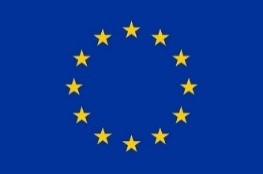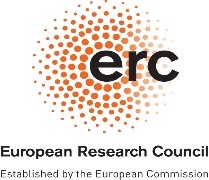References
Abdelaziz F., El-Enbaby H., Zhang X., Breisinger C. 2018. Clusters as drivers of local industrial development in Egypt. Which are the promising sectors and locations? Working Paper 10, Middle East and North Africa Regional Program Working Paper series, June 2018, Retrieved from: https://bit.ly/2Xmoyss
Search via ReFindit
Acemoglu D., Hassan T. A., Tahoun A. 2018. The Power of the Street: Evidence from Egypt's Arab Spring, The Review of Financial Studies, 31(1), 1-42.
Search via ReFindit
African Development Bank (AfDB). 2012. African Economic Outlook: Tunisia 2012. Retrieved from: https://bit.ly/2Rj7HCZ
Search via ReFindit
Ait Ali A., Msadfa Y. 2016. Industrial policy, Structural Change and Global Value Chains Participation: Case study of Morocco, Tunisia and Egypt, Policy Paper16/04, OCP Policy Center. Retrieved from: https://bit.ly/3c4rf63
Search via ReFindit
Akinfieva Y. 2019, January 16. SME Financing in Egypt, Mondaq, Retrieved from: https://bit.ly/2JMcLLZ
Search via ReFindit
Al-Ahram. 2012, November 22. Al-Ahram Gate publishes the full text of the decisions: Morsi fortifies his decisions with a constitutional declaration and prevents the dissolution of the constituent assembly and the Shura council (Arabic text), Retrieved from: https://bit.ly/2Vjvmp5
Search via ReFindit
Altenburg T. 2011. Industrial policy in developing countries: Overview and lessons from seven country cases. Discussion paper 4/2011. German Development Institute, Bonn.
Search via ReFindit
Amraoui B., Ouhajjou A., Monni S., El Amrani El Idrissi N., Tvaronavičienė M. 2019. Performance of clusters in Morocco in the shifting economic and industrial reforms, Insights into Regional Development, 1(3), 227-243.
Search via ReFindit
Ayadi M., Mattoussi W. 2014. Disentangling the pattern of geographic concentration in Tunisian manufacturing industries, WIDER Working Paper 2014/072, World Institute for Development Economics Research, United Nations University, Helsinki, Finland.
Search via ReFindit
Baccouche N. 2016. Economic and social rights and the Tunisian Constitution. New York: United Nations Development Programme, Arab States.
Search via ReFindit
Ballard B. 2020, January 31. Morocco's infrastructural investment gap is hitting rural areas hardest, World Finance, Retrieved from: https://bit.ly/2XP1Rxp
Search via ReFindit
BBC. 2015, August 6. Egypt launches Suez Canal expansion, Retrieved from: https://bbc.in/3e0wWUh
Search via ReFindit
Belhaj Hassine N. 2015. Economic Inequality in the Arab Region, World Development, 66, 532–556.
Search via ReFindit
Bennani-Chraïbi M. 2008. “Hommes d'affaires” versus “profs de fac”. La notabilisation parlementaire d'un parti de militants au Maroc. Revue Internationale de Politique Comparée, 15(2), 205–219.
Search via ReFindit
Bergh S. I., Rossi-Doria D. 2015. Plus ça change? Observing the dynamics of Morocco's ‘Arab Spring' in the high atlas. Mediterranean Politics, 20(2), 198–216.
Search via ReFindit
Berrada E.M. 2018, July 24. Le Maroc paie son TGV au prix fort, Jeune Afrique, Retrieved from: https://bit.ly/2RJSvix
Search via ReFindit
Birnbaum M. 2012, November 22. Egypt's President Morsi takes sweeping new powers, The Washington Post, Retrieved from: https://wapo.st/2VFowt1
Search via ReFindit
Blaise L., Tlili H., Szakal V. 2019, January 18. Tunisia looks for ways to stem 'brain drain', France 24 Report, Retrieved from: https://bit.ly/2xqloJL
Search via ReFindit
Bowen J. 2013, July 2. Egypt President Morsi warns of army ultimatum 'confusion', BBC News, Retrieved from: https://bbc.in/34NXoMB
Search via ReFindit
Brockmeyer A., Khatrouch M., Raballand G. 2015. Public Sector Size and Performance Management: A Case-Study of Post-Revolution Tunisia, Policy Research Working Paper 7159, World Bank Group. Retrieved from: https://bit.ly/39YCNGv
Search via ReFindit
Burger M., Ianchovichina E., Rijkers B. 2013. Risky Business: Political Instability and Greenfield Foreign Direct Investment in the Arab World. Policy Research Working Paper Series, WP 6716, The World Bank.
Search via ReFindit
Cammett M. 2007. Business–Government Relations and Industrial Change: The Politics of Upgrading in Morocco and Tunisia, World Development, 35(11), 1889–1903.
Search via ReFindit
Campante, F., Chor D. 2012. Why was the Arab World Poised for Revolution? Schooling, Economic Opportunities, and the Arab Spring, Journal of Economic Perspectives, 26(2), 167–188.
Search via ReFindit
Chekir H., Diwan I. 2013. Distressed Whales on the Nile – Egypt Capitalists in the Wake of the 2010 Revolution, Working Paper 747, Working Papers Series, The Economic Research Forum.
Search via ReFindit
Coşkun E.R. 2019. The role of emotions during the Arab Spring in Tunisia and Egypt in light of repertoires, Globalizations, 16(7), 1198-1214.
Search via ReFindit
Costello M., Jenkins J.C., Aly H. 2015. Bread, Justice, or Opportunity? The Determinants of the Arab Awakening Protests, World Development, 67, 90–100.
Search via ReFindit
Darwisheh, H. 2012. Egypt in the Era of Hosni Mubarak 1981–2011 by Amin, Galal, Book Review, The Developing Economies, 50(1), 75-78
Search via ReFindit
Darwisheh, H. 2020. The Political Economy of Reforms in Egypt: Issues and Policymaking since 1952 by Khalid Ikram, Book Review, The Developing Economies, 58(2), 186-189
Search via ReFindit
Desrues T. 2013. Mobilizations in a hybrid regime: the 20th February movement and the Moroccan regime, Current Sociology, 61(4), 409–423.
Search via ReFindit
Egypt Today. 2019, June 13. ‘The Big 5 Construct Egypt' grows as report reveals $300 billion of planned projects, Retrieved from: https://bit.ly/2xcXtNv
Search via ReFindit
El Tawil N. 2019, January 30. The Major Projects of 2018-19, Egypt Today, Retrieved from: https://bit.ly/3bRavz4
Search via ReFindit
El-Haddad A. 2020. Redefining the social contract in the wake of the Arab Spring: The experiences of Egypt, Morocco and Tunisia, World Development, 127, 1-22.
Search via ReFindit
Elsayyad M., Hanafy S. 2014. Voting Islamist or voting secular? An empirical analysis of voting outcomes in Egypt's “Arab Spring”, Public Choice, 160, 109-130.
Search via ReFindit
Entrust (Development and Management Consultants). 2018. Egypt's National Strategy for the Development of Organic Clusters: 2019-2030. Retrieved from: https://bit.ly/2VcTokB
Search via ReFindit
Epstein, D. R., Bates, J., Goldstone, I., Kristensen, S., O'Halloran, S. 2006. Democratic Transitions, American Journal of Political Science, 50(3), 551–569.
Search via ReFindit
European Cluster Collaboration Platform (ECCP). 2017. Tunisia, July 31. Retrieved from: https://bit.ly/3ebP2my
Search via ReFindit
Ghanmi L. 2019, October 12. Tunisia's phosphates company at risk of collapse. The Arab Weekly, Retrieved from: https://bit.ly/2Xf6EHQ
Search via ReFindit
Hahn T., Vidican-Auktor G. 2017. The effectiveness of Morocco's industrial policy in promoting a national automotive industry. Discussion Paper 27/2017, German Development Institute (DIE), Bonn.
Search via ReFindit
Hahn T., Vidican-Auktor G. 2018. Industrial Policy in Morocco and its Potential Contribution to a New Social Contract. Discussion Paper 31/2018, German Development Institute (DIE), Bonn.
Search via ReFindit
Hakam A. 2020. L'industrie automobile au Maroc: Vers de nouveaux gisements de croissance, DEPF (Direction des Etudes et des Prévisions Financières). Retrieved from: https://bit.ly/2yF95Jy
Search via ReFindit
I Watch. 2016. Etude sur le systeme national d'integrite Tunisie 2015, project conducted by I Watch Organization and Transparency International and funded by the European Union. Retrieved from: https://bit.ly/2Xhy9Rl
Search via ReFindit
Institut Tunisien de la Compétitivité et des Études Quantitatives (ITCEQ). 2017. Programme de Mise à Niveau : Bilan, réalisations et perspectives. Retrieved from: https://bit.ly/3a4U0yc
Search via ReFindit
Kasraoui S. 2018, October 1. WSJ: Morocco is Leading Africa's Automotive Industry, Morocco World News, Retrieved from: https://bit.ly/3e1M97A
Search via ReFindit
Kchouk B. 2017. Les "anciennes" élites économiques et le changement de régime en Tunisie: de l'incertitude vers la consolidation politico-économique des positions, Politix, 2017/4(120), 157-178.
Search via ReFindit
Kienle E. 2012. Egypt without Mubarak, Tunisia after Bin Ali: theory, history and the ‘Arab Spring', Economy and Society, 41(4), 532-557.
Search via ReFindit
Looney R. 2014. The Little Monarchies That Could. How Oman, Jordan, and Morocco Survived the Arab Spring. The Milken Institute Review, 2nd Quarter, 34-43.
Search via ReFindit
Mabon S. 2013. Aiding Revolution? Wikileaks, communication and the ‘Arab Spring' in Egypt. Third World Quarterly, 34(10), 1843-1857.
Search via ReFindit
Malik A., Awadallah B. 2013. The Economics of the Arab Spring. World Development, 45, 296–313.
Search via ReFindit
Matta S., Appleton S., Bleaney M. 2019. The Impact of the Arab Spring on the Tunisian Economy. The World Bank Economic Review, 33(1), 231–258.
Search via ReFindit
McCarthy D. A. 2012. Economic Rebalance: The Role of Infrastructure in the Success of the Arab Spring, National Council on U.S. Arab Relations, Infrastructure and Business Opportunities in North Africa Event, Washington, DC, Retrieved from: https://bit.ly/2RDjDQ1
Search via ReFindit
Mekki N. 2018. The political crisis in Tunisia: Is it a consequence of the semipresidential arrangement? ConstitutionNet. Retrieved from: https://bit.ly/2x2Ys30
Search via ReFindit
Ministry of Trade and Industry (MTI). 2017. Industry and Trade Development Strategy 2016 – 2020. Retrieved from: https://bit.ly/2Xp1hWG
Search via ReFindit
Morocco Country Commercial Guide (MCCG). 2019. Morocco – Infrastructure. Select USA. Retrieved from: https://bit.ly/2K3LCnQ
Search via ReFindit
Oubenal M., Ben Hamouda A. 2018. The political economy of business elites in Tunisia: Actors, strategies, and identities. Working paper No. 1273, Working Papers Series, Economic Research Forum.
Search via ReFindit
Pearlman W. 2013. Emotions and the Microfoundations of the Arab Uprisings. Perspectives on Politics, 11(2), 387-409.
Search via ReFindit
Pfeifer K. 2015. The Tortuous Path to a New Economic Agenda in Egypt and Tunisia. Athens Journal of Mediterranean Studies, 1(1), 9-24.
Search via ReFindit
Przeworski, A., Alvarez, M., Cheibub, J., Limongi, F. 2000. Democracy and Development: Political Institutions and Well-Being in the World, 1950–1990. Cambridge: Cambridge University Press.
Search via ReFindit
Raballand G., Veuillot G., Habhab L., de Meneval P. 2015. Middle East and North Africa Governance Reforms of State-Owned Enterprises (SOEs) Lessons from four case studies (Egypt, Iraq, Morocco and Tunisia), Report No: ACS15142. Retrieved from: https://bit.ly/3e911Rz
Search via ReFindit
Rijkers B., Freund, C., Nucifora A. 2017. All in the Family: State Capture in Tunisia. Journal of Development Economics, 124, 41–59.
Search via ReFindit
Rougier E. 2016. “Fire in Cairo”: Authoritarian–Redistributive Social Contracts, Structural Change, and the Arab Spring. World Development, 78, 148–171.
Search via ReFindit
Schwab K., Sala-i-Martín X. 2015. The Global Competitiveness Report 2015–2016, World Economic Forum, Geneva.
Search via ReFindit
Serrano F. 2019, April 23. Is Tunisia's Post-Arab Spring ‘Success Story' Only Skin-Deep? World Politics Review, Retrieved from: https://bit.ly/34EG0tV
Search via ReFindit
Taylor A., Miller E. 2018, January 14. What's next? Seven years after Tunisia's spring. Atlantic Council, Retrieved from: https://bit.ly/34C1OGg
Search via ReFindit
The Economist Intelligence Unit (EIU). 2020. Democracy Index 2019: A year of democratic setbacks and popular protest, report published by The Economist Intelligence Unit, Retrieved from: https://bit.ly/369hq69
Search via ReFindit
Transparency International. 2016. People and Corruption: Middle East and North Africa Survey 2016, report published May 3, 2016.
Search via ReFindit
Turki S. Y., Verdeil E. 2015. Tunisie: la Constitution (du Printemps) Ouvre le Débat sur la Décentralisation, in Harb M., Atallah S. (Ed.) Local Governments and Public Goods: Assessing Decentralization in the Arab World. The Lebanese Center for Policy Studies, 11-45.
Search via ReFindit
World Bank. 2006. Morocco, Tunisia, Egypt and Jordan after the end of the multi-fiber agreement. Washington, D.C., World Bank, Report No. 35376, MNA.
Search via ReFindit
World Bank. 2014. The Unfinished Revolution: Bringing Opportunity, Good Jobs and Greater Wealth to all Tunisians, Development Policy Review, Washington DC: World Bank, published May 2014.
Search via ReFindit












 RSS 1.0
RSS 1.0